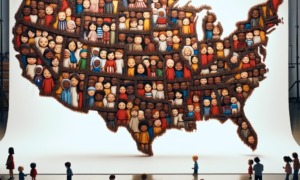Author(s): The Education Testing Service – Center for Research on Human Capital and Education
Published: Mar. 2015
Report Intro/Brief:
“This report, the first in a series to be produced by Educational Testing Service using data from the Programme for the International Assessment of Adult Competencies (PIAAC), is an attempt to focus attention on a topic of interest to a broad range of constituencies. The subject of this report is our nation’s millennials, those young adults born after 1980 who were 16–34 years of age at the time of the assessment. The authors chose to center attention on this cohort for several key reasons. First, these young adults include the most recent products of our educational systems. Second, according to recent reports, they have attained the most years of schooling of any cohort in American history. And, finally, millennials will shape the economic and social landscape of our country for many years to come.
One central message that emerges from this report is that, despite having the highest levels of educational attainment of any previous American generation, these young adults on average demonstrate relatively weak skills in literacy, numeracy, and problem solving in technology-rich environments compared to their international peers. These findings hold true when looking at millennials overall, our best performing and most educated, those who are native born, and those from the highest socioeconomic background. Equally troubling is that these findings represent a decrease in literacy and numeracy skills for U.S.adults when compared with results from previous adult surveys.
This report explores the growing importance of education and skills in the context of the larger technological, economic, social, and political forces that have been reshaping America for the past 40 years. To put it bluntly, we no longer share the growth and prosperity of the nation the way we did in the decades between 1940 and 1980.Since around 1975, those who have acquired the highest levels of education and skills have become the big winners, while those with the lowest levels of education and skills have fared the worst. Millions of hard-working Americans who believed they were strongly anchored in the middle class have fallen into joblessness and economic insecurity. As the authors note, these changes have both immediate and long-term consequences for families, communities, and the nation as a whole.”


























